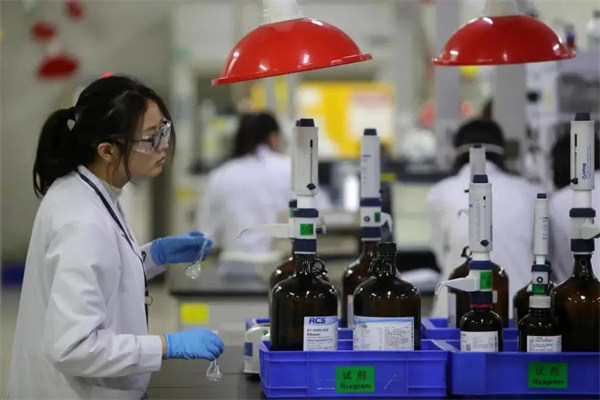TIANJIN, China, Oct. 1, 2021 /PRNewswire/ — A news report by chinadaily.com.cn:
The Binhai New Area in North China’s port city of Tianjin has gathered together more than 1,500 biomedical companies that have made great scientific achievements in key areas, such as recombinant proteins and stem cells.
The annual business revenue of the biomedical industry in Binhai is expected to reach 100 billion yuan ($15.44 billion) by 2025 with the companies as the major driving force.
Located on the eastern coast of Tianjin, Binhai is an important area for the development of both the Bohai Economic Rim and Beijing–Tianjin–Hebei region. As an eastern starting point of the Eurasian Continental Bridge, Binhai has a land area of 2,270 square km, with 153 km of coastline.
The new area is a national pilot area for experimental reform measures and the first free trade zone in North China. It has won national honors for its high level of public etiquette and cleanliness.
The new area is developing into a new frontier for biomedical research. It has gathered leading players in the field, such as Novo Nordisk, the world’s largest producer of insulin, and Tianjin International Joint Academy of Biomedicine, introducing global high-end talents to boost research.
CanSinoBIO, one case in point, has, since its establishment in the new area in 2009, experienced tremendous growth.
In March 2019, CanSinoBIO was listed on the Main Board of the Hong Kong Exchange and Clearing Limited (HKEX), and was, a year later, listed on the Sci-Tech Innovation Board (STAR Market) of the Shanghai Stock Exchange.
The company has in-licensed a number of new technologies and intellectual properties through collaborations with international research organizations and biotechnology companies.
CanSinoBIO has collaborated with world-class academic centers and start-up companies that develop innovative technologies, in order to help prepare the portfolio of the next few decades and ensure the sustainable growth of the company.
It is focusing on continually expanding its manufacturing capacity, and is further enhancing the competitiveness and the scope of its portfolio by promoting the R&D.
Asymchem, one of China’s top 10 CDMO companies, has made impressive strides since its founding in 1999 in the new area, providing R&D and one-stop production services to the world’s top pharmaceutical companies.
At present, the company, with a total market value of over 100 billion yuan, total assets of 7.1 billion yuan, and around 6,200 employees, has over 10 subsidiaries across the globe for the purposes of research, production and sale. Four of these subsidies are located in the new area’s Tianjin Economic-Technological Development Area (TEDA).
Asymchem is committed to supporting emerging biotech companies, smaller and specialty pharma.
It provides solutions ranging from early clinical stages to the commercial stage, including the R&D and cGMP production of advanced intermediates, APIs, formulations, as well as clinical research services.
Asymchem’s R&D chemical development team consists of more than 2,000 highly-qualified scientists with experience in the most challenging syntheses.
Established with a registered capital of 600 million yuan, in June 2006, WuXi AppTec (Tianjin) is a complete wholly-owned subsidiary of Wuxi AppTec (“A+H” dual listing company), and is a global provider of research and development, as well as manufacturing services, for healthcare companies.
Being innovation-driven and customer-focused, WuXi AppTec helps partners improve the productivity of advancing healthcare products through cost-effective, efficient, socially responsible and sustainable solutions.
With industry-leading capabilities, such as R&D and the manufacturing of small molecule drugs, cell and gene therapies, and the testing of medical devices, WuXi AppTec’s open-access platform is enabling more than 5,200 collaborators from over 30 countries to improve the health of those in need.
Its Tianjin company employs more than 3,000 staff and 2,800 scientific researchers, over half of whom hold master’s and doctoral degrees. The main business revenue in 2019 was 1 billion yuan.
In 2020, Binhai ‘s biomedical industry output value stood at 40.25 billion yuan, accounting for 64.2 percent of the city’s total biomedical output.
Smart technology applications have gradually been applied to help facilitate the upgrading and modernization of production and manufacturing. The new area has also seen an increase in international cooperation and roles.
By 2025, Binhai will have been shaped into a highly innovative and internationally competitive drug development and manufacturing piloting zone, characterized by its comprehensive subdivisions and variety of complete medical products.
Well-designed industry clusters, which are worth tens of billions of yuan and dedicated to pharmaceuticals, biotechnology, medical devices, diagnostics and modern Chinese medicine, will take shape in the new area.
In addition, Binhai is now attracting more international talents to further boost its biomedical industry.











